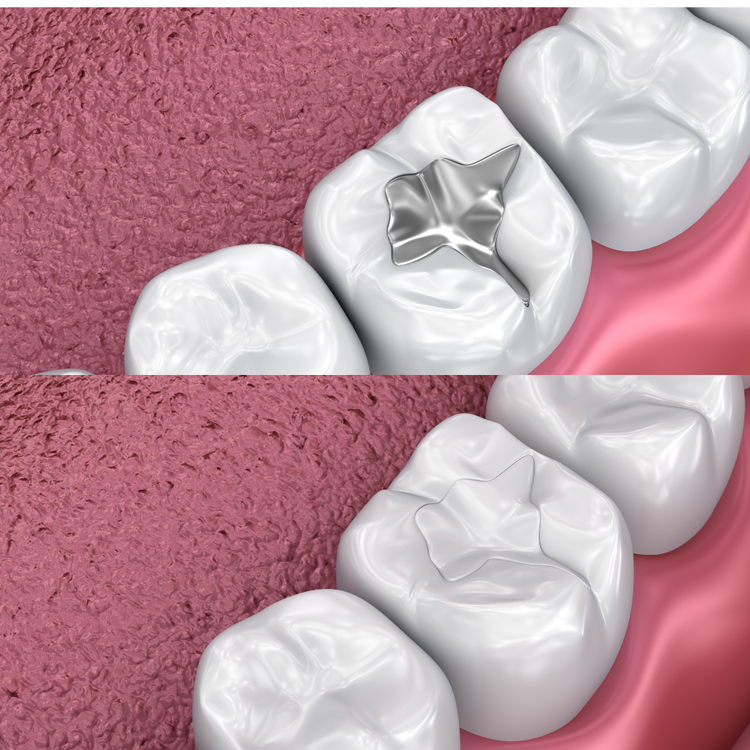Composite Filling
Whilst most patients try to maintain good oral hygiene and reduce their frequency of sugar intake, from time to time we may need a dental filling to restore decayed or fractured teeth
Tooth Decay is caused by acid-producing bacteria that are found in plaque-producing acids after dietary sugar intake. These acids break down the enamel and dentine of teeth and can cause serious damage to the tooth.
In order to prevent tooth decay it’s advised to floss once daily, brush twice daily and limit dietary sugar intake to no more than 3 occasions per day. Sugar is found in many different foods such as fruits, processed foods, fizzy drinks and confectionery.
Early tooth decay also known as Enamel decay can be treated conservatively with daily flossing, brushing and fluoride mouthwash use with six monthly reviews by a dentist. Patients are usually not even aware of any symptoms if they have early enamel tooth decay.
Moderate tooth decay known as Dentine decay will need a filling as dentine decay will advance further unless it’s treated by a dentist. Moderate tooth decay can cause tooth sensitivity especially on drinking cold water.
Advanced tooth decay that’s reached the nerve (pulp) of the tooth will need Root Canal Treatment in order to maintain the tooth without pain. Advanced tooth decay can cause pain and swelling and other symptoms such as pain in chewing.
Treatment:
A white composite filling is the most commonly used type of filling these days as it looks very natural and bonds to the remaining tooth tissue very well. A composite white filling can be provided for patients in a single visit. This procedure would normally take approx. 30mins and a local anesthetic will be required.
To book your consultation with one of our highly experienced dental surgeons please call 020 8299 1434 and a member of our friendly receptionists will be happy to help you.
Alternatively, you can email us at: info@dulwichdentists.com

Why Choose Us
Frequently Asked Questions
How often should I visit the dentist?
What should I do in a dental emergency?
Do you offer services for kids?
What are my options for replacing missing teeth?
Is teeth whitening safe?
Ready to Book Your Appointment?
Contact us today to schedule your visit and take the first step toward a healthier smile.
